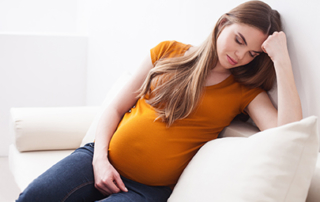Transcranial Magnetic Stimulation (TMS) as a Treatment for Refractory Depression
As many as 30% of people suffering from depression do not respond to antidepressant treatment1. When treatment options are exhausted psychiatrists often turn to electroconvulsive therapy (ECT). An electric current is used to cause a brief seizure in the brain. Although this is a relatively safe method of treatment, impairments of both cognition and memory are potential side effects2.







